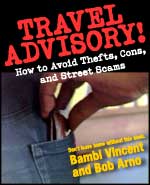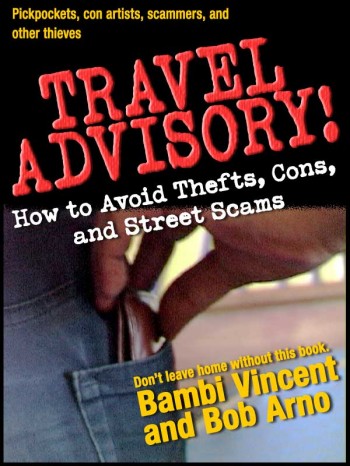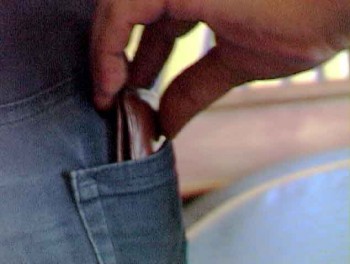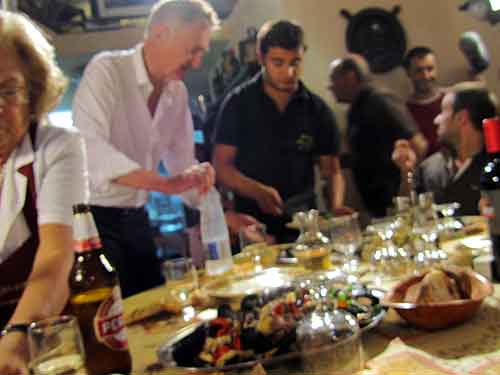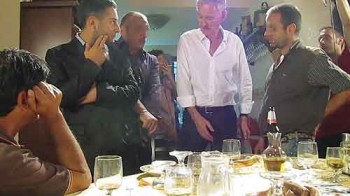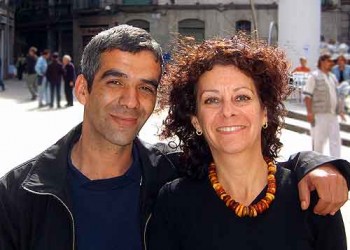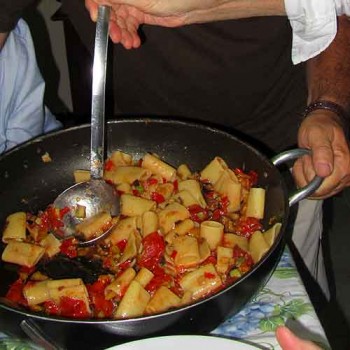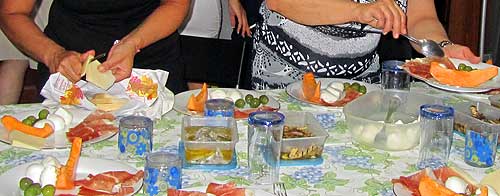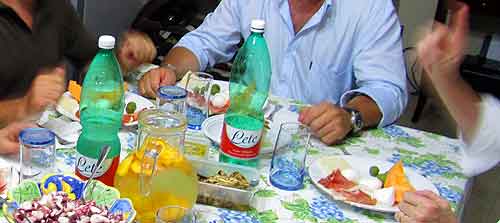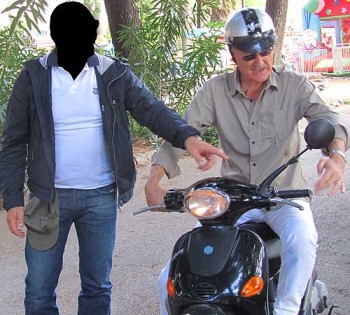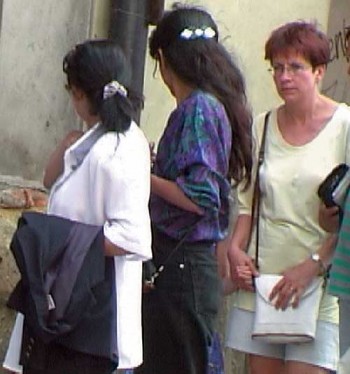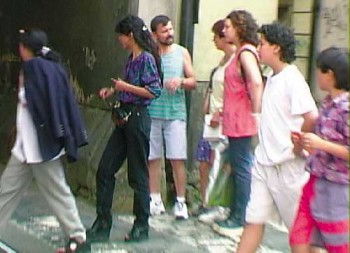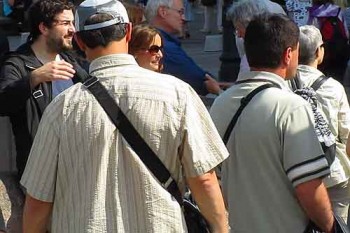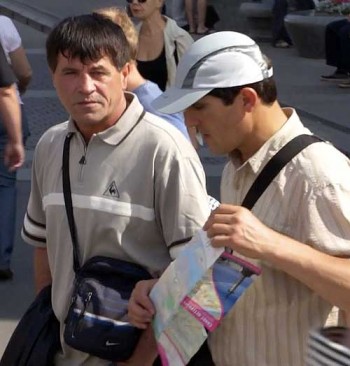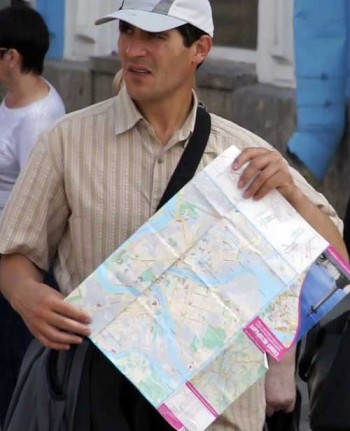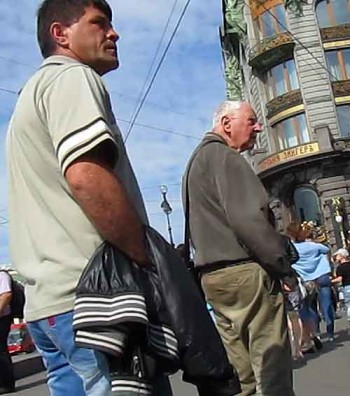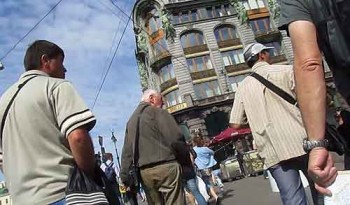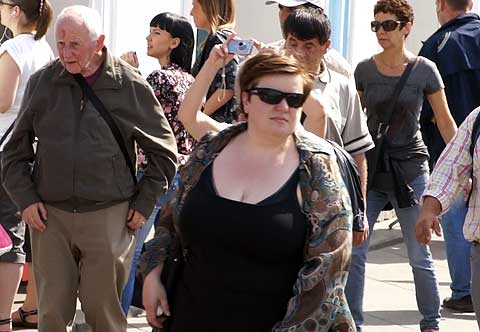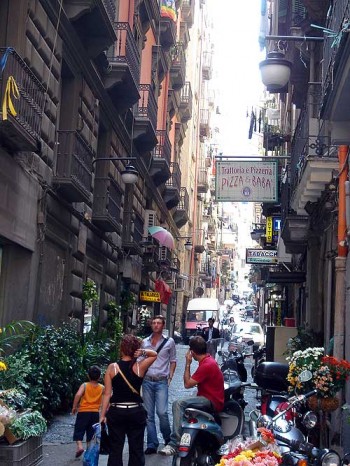
In Naples, Italy, media reports concerning our upcoming National Geographic pickpocket documentary have stirred up serious controversy. A large number of citizens have become upset, despite not having seen the film. More than a thousand have signed a petition demanding that the program not be broadcast this Sunday, September 25, in Italy.
The petitioners believe that the film will give Naples a bad reputation. (Uh, Naples already has a certain reputation, folks.) Whether broadcast in Italy or not, the documentary, Pickpocket King, will play in the rest of the world, with most countries airing it between now and the end of the year.
A reader called “Oceanus ngo” has posted a comment on our documentary announcement page as follows:
Naples deserves much more treatment and attention from the NG. The “documentary” shot with the help of actors is detrimental to the image of Naples from the title, but rather affirms the false! According to ministry data Napoli is not in any way being the first city in number of pickpockets! A giant transmitting information such as the NG this “documentary” yet another deal, free low blow to the city of Naples to zero the work of active citizenship and associations that try to do every day out of Naples, a new image, the true, that of a big, beautiful capital of Europe is unique in the world! Among the many, even our work, our tribute to the City of Naples, to which we have dedicated an entire project “Another Naples” http://www.oceanus.it/it/progetti/another-naples.html Here following the first 1000 signatures collected in less than three days, from September 23 to 20 at night, to ask the non-airing of the “documentary” National Geographic “Naples, the King of pickpockets” scheduled for Sunday, September 25, 2011.
I have pruned the 1,023 petitioners’ names from the post.
Bob and I want to emphasize that we adore the city of Naples (from a visitor’s perspective, of course). While shooting the documentary we made a conscious effort (easily accomplished) to highlight the beauty and charm of Naples.
Afterwards, in the editing room, the filmmaking team of director, producer, and editors had a story to tell and a finite number of minutes in which to tell it. Sadly, much great stuff was cut which portrayed the good, the bad, the beautiful, and the ugly. As always after a successful “shoot,” all parties to the making of the documentary were disappointed to see the loss of this fantastic scene or that poignant image because ruthless editing was required.
Here, Bob Arno replies to Oceanus ngo and the issues raised:
Hello Oceanus ngo. Thanks for sharing your concerns. We are not representatives of National Geographic, and we have no influence as to the program’s title. I even doubt that its head office has editorial input in the marketing of its programs outside the United States.
While I cannot address your dismay over the title, I would like to comment on a more sensitive point: the prevalence of pickpocketing in Naples compared to other European cities.
Real pickpocket statistics are impossible to acquire anywhere. First, how do you define “pickpocketing?” Tearing a handbag off a shoulder from a scooter? Ripping off a Rolex? A wallet or passport cleverly extracted from a fanny pack on a bus?
Official statistics are based on police reports. Reports tend to fall into multiple categories. We’ve written extensively about all this here.
We have spent considerable time researching Naples, actually in Naples, every year for the past 18 years. We research many, many other cities as well.
In the summer months, Naples has more cruise ship visitors than hotel guests. How likely is it that a typical cruise ship passenger experiences a theft in Naples, versus in St. Petersburg, Barcelona, or Istanbul? All these cities have pickpocketing at various level, and all cater to cruise ship passengers.
This brief reply is not the forum to explain all the complicated details of statistics. The majority of travelers, and especially those who visit this blog, are more interested in intriguing anecdotes of various cons and scams, and how to protect themselves when traveling abroad.
Here is a summarization of my thoughts regarding this Sunday’s broadcast:
1. Generally, only 30% (or fewer) of victims ever bother to visit a police station to report a theft, and even fewer cruise passengers because their ships usually depart at four or five p.m. A rule of thumb: there are usually 70% more incidents than statistics show.
2. Some cities “massage” these reports even further for various reasons. I do not know what the official daily or weekly counts are in Naples. There may be a political agenda, for example, requesting more funds for police; or the opposite, less money for law enforcement.
3. A large number of tourists who “visit Naples” head straight out of town for Pompeii, Capri, and the Amalfi Coast—cruise ship passengers, for example. While these tourists have officially “visited Naples,” they have not strolled around town. Of those who do experience the charm of the streets of Naples, and especially of those who brave public transportation, the proportion of pickpocket incidents is higher than in any other city we have researched (and we have researched many around the world). This conclusion is based on our constant survey of visitors to Naples, the number of pickpockets we have observed “at work” and interviewed, and the vast number of times we have been pickpocketed ourselves (sometimes several times in a single day). Granted, our wallet is empty for the sake of research, but we do not make it easy for or tempt pickpockets. We simply behave as any tourists.
4. Some cities with pickpocketing problems have used more draconian legal maneuvers to fight the crime. For example: in Paris video cameras are mounted on train platforms coupled with new legal statutes. In France, it is now a crime for a pickpocket (who already has one conviction) to begin even the first step in a sequence of moves to extract a wallet, such as “fanning,” which is brushing against the victim’s pockets to establish where the money is.
Professional pickpockets even have their own lists of cities where they like to visit in order to practice their “art.” Barcelona is number one in pickpocket-preference, because of the ineffective legal system. Paris, on the other hand is now disliked because of the cameras and the new law.
5. Compared to other Italian cities, for example Rome or Bologna, an uninformed visitor stands a higher chance of a pickpocket confrontation in a concentrated area, including on local transportation. That the skill of Naples’ pickpockets is exceptionally high. We say this after having witnessed in excess of 500 pickpocketing incidents around the world.
6. The double-threat of pickpocketing coupled with credit card fraud is not high in Naples. “Shoulder-surfing” and breaking of credit card pin codes is higher in other cities. It is the actual extraction skill and success rate that is exceptionally high in Naples.
7. Media across Europe and especially travel companies always warn their travelers to be very careful when visiting Napoli. This is a reputation gained over many years of visitors returning home with unfortunate experiences. It is also true that Napoli today has regained a reputation as a fun city with energy and flair.
We, personally, consider Naples one of the most charming cities in Europe. An absolute “must see” for any traveler; the restaurants, the shopping, the old city, the waterfront, the coffee shops, the great historical sites, the extension of the Amalfi coast, side trips to Capri and the unbelievable warmth of the people—its friendliness!
Yes, an entire program could be made about the pulse of the city and its people. But is there a “will” to clean up the criminal mess? It will take a monstrous effort, a strong focus on correcting a certain social malaise, and the re-education of those who are still in the quagmire of criminal activity. We’re back to money and available funds in a time when all of Europe is contracting.
Nobody wants to hear what two outsiders like ourselves have to say about the measures which are necessary. You have your own experts. But I am confident that if you can direct sufficient energy into giving the hundred or so professional pickpockets in Naples opportunities for new jobs, you would be able to clean up the image of Naples within two years. Expose the problem and offer alternatives. Others might say: why help these bastards?
8. The Italian media in Napoli has mentioned (in the few articles we have managed to read) that the program depended on actors and that it is not a true documentary. This is not so. I have not seen the Italian version of the program, so I cannot speak with absolute authority on this matter. But I can say that, apart from a short demonstration of bag-snatching from a motor-scooter, there are no actors. There is also a short segment in which two former pickpockets are interviewed and asked to re-enact some moves. They are not actors either. Since they gave up pickpocketing to find new careers, they also hoped for small parts in movies. Hopefully this will happen for them.
Their parts are brief, and the film does not concentrate on their action, or their participation. All the other pickpockets in this documentary are themselves; not actors, but professional thieves. I have seen some of them “working” trams and buses over a ten-year period.
If those in Naples who are fortunate enough to have a stable job and income are concerned that National Geographic will cast an ugly image upon their beloved city, I say they are wrong. This documentary does not portray Naples as especially dangerous or threatening. It simply follows my hunt for a specific individual, and shows how I then “connect” with his team.
One might say that I am “fooling” the thieves—our term is “social engineering”—because our ultimate goal is to educate the world on the methods of skilled pickpockets. The outcome, after watching a film like this one, is that the viewer will better understand how to behave when traveling, and how to avoid the unfortunate incidents they will never forget. In that endeavor we are extremely successful. Far more so than the police. We make people aware—through this platform, through books, and through stage presentations in which we mix “reality” with comedy show-business. The lasting impression is one that is never forgotten. We have literally thousands of thank-you notes to prove the success of our campaign.
Sincerely,
Bob Arno


